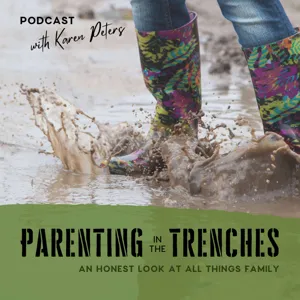Dear New and Expecting Dads, (Mamas - get ready to send the link to this podcast episode to your male partner!)
I think we all recognize the disparity between the information and content available addressing the roles and needs of mothers in the perinatal arena and the same geared toward our male partners. My hope is that today we can open up the conversation and share some information and resources to start to close that gap.
In this episode we are hitting a topic that rarely gets put in the spotlight: the male partner's perspective on new parenting, supportive roles, shifting assumptions about involvement and contribution and more.
I’m grateful to be joined by Dr. Dan Singley to help us wade through these waters. Dr. Singley is a San Diego-based dad and board certified psychologist and Director of The Center for Men’s Excellence. His research and practice focus on men’s mental health with a particular emphasis on reproductive psychology and the transition to fatherhood. He conducts training and presentations around the country to assist individuals and organizations to enhance their level of father inclusiveness, and founded the grant-funded Basic Training for New Dads, Inc. nonprofit and Padre Cadre social networking application just for dads in order to give new fathers the tools they need to be highly engaged with their infants as well as their partners.
Listen along as we learn about truly partnering together in a way that will contribute to the health and wellbeing of ourselves, our partners and ultimately, our families.
If you are a couple who are soon to be or new parents, we are all rooting for your relationship to stay strong, feel connected and for you to thrive as an attuned family. Until the end of April/22, you can access my online course for couples When You & Me Become Three at 25% off when you enter the coupon code: BABYPROOF. Don't miss out on this deal - once you own a copy, it's yours to keep and work through when you're ready.
With you,
Karen
PS.
Dr. Singley offers a virtual Expectant Dads Class, available here: https://www.menexcel.com/parenting-classes-in-san-diego-for-dads/
Expectant fathers enjoy an informal, hands-on class that provides practical information and a real boost of confidence about handling the baby's impending arrival.
Participants connect with other expectant dads, and also have the opportunity to talk with a “veteran dad” who has been through the class and brings his infant with him to the class. Dads-to-be get to hear directly from the new dad about his experience—and practice diapering, swaddling, soothing, and burping the baby.
Because this is a learning course and not "therapy", you can join from anywhere around the world!
Also check out his book: Parental Mental Health: Factoring in Fathers
Website: Www.menexcel.com
And follow on:
FB @MenExcel
IG @Men.Excel
Twitter @MenExcel
